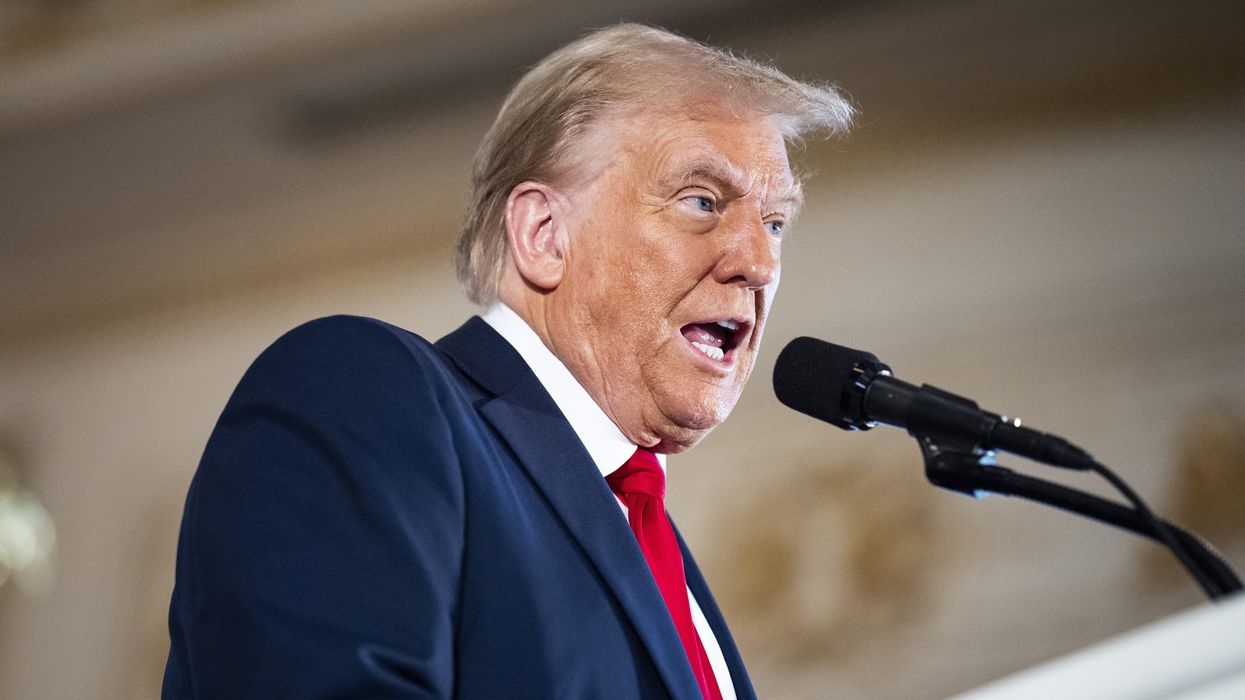After President Trump brought global economics to the brink of meltdown with his erratic unilateral tariff decrees, Tyler Page and Maggie Haberman reported in the New York Times that Trump told Republicans “I know what the hell I’m doing!” and, after reversing himself, his press secretary, Karoline Leavitt, said he was acting “instinctively, more than anything else.”
What explains this and other behavior that goes alarmingly beyond what most of his closest supporters expected of him?
Counterintuitively, one of the greatest dangers to which a political leader’s inner circle must pay attention is when the leader experiences significant success. Against the odds, Trump recovered from an electoral loss and a slew of lawsuits to regain the presidency for a second time, with larger margins, and watched the lawsuits disappear as a cloak of immunity wrapped around him. Impressive successes! Two things then occur.
First, the leader takes these favorable outcomes to reinforce any existing sense of specialness, superior acuity, or messianic mission. Increasingly, they tune out the counsel of others and trust their own gut, which has so far proven to be brilliantly right, regardless of mounting evidence to the contrary.
Second, those in his inner circle of confidants and in the near inner circle of elites become cautious about contradicting him. The leader is too successful, has too much power, and is too darn sure of himself. When a leader veers off course, their most intimate followers share culpability for retreating from giving counsel based on good data and judgment. They see that truth-telling is unwelcome and become self-censors, valuing their position and access more than their obligation to be trusted advisors.
The confluence of these two tendencies is a recipe for disaster in governance. The leader is rolling the dice. When they come up 7s or 11s in successive rolls, they become addicted to risk and the rush they get when they beat the odds. They forget that the odds will sooner or later turn against them.
To use a historic case, not because it is analogous, but because it is well known, when Adolph Hitler overruled the cautions of his political and military advisors and took the risks of occupying the Rhineland, marching into Austria, and annexing Czechoslovakia, the successes created a sense of invincibility. This spell continued when he invaded Poland, though the allied forces responded with a declaration of war. His rapid subjugation of Poland, the “low countries” and France reinforced his sense of invincibility. By then, no advisors could stop him when he made the fatal error of invading Russia.
The losers in that case were not just tens of millions of Europeans who forfeited their lives, but the German people themselves, whose country was decimated under the counteroffensives of the Allied forces.
This is a crucial lesson for those who support President Trump. There is no question he has proven to be an exceptional political figure who won the trust of a majority of American voters. They placed their faith in his promise to create a government that would be more responsive to their needs. To do this, he must disrupt the status quo, which, inherently, will produce voluminous objections to his policies. This would still be within the framework of a dynamic political process that may give his supporters something of what they expect.
In contrast, by becoming obsessively self-referential, Mr. Trump, like highly successful leaders before him, risks nullifying whatever benefit he might bring to his supporters. No human being on earth, no matter how messianic they claim their mission, can be trusted to single-handedly control the vast powers of the US presidency without seeking a range of viewpoints to inform their decision making. The effect of their blind spots, personal peccadillos, or biases is magnified tenfold and threatens to nullify the value they may otherwise bring to the office.
In my book, To Stop a Tyrant, I discuss three types of followers: conformists, colluders, and courageous followers. If those who most intimately surround the political leader are conformists (sycophants) or colluders (who amplify his worst impulses), the political leader will continue to become more extreme, exposing themselves and their country to far greater risk. The antidote is courageous followers who will stand up and report the truth as they see it, regardless of the displeasure this evokes in the leader. It is courageous followers who, in fact, are the most loyal to the leader.
In the recent event, when the US Treasury bond market began to behave erratically, his advisors finally found their voice as courageous followers and got through to the President. He suspended the market-shaking tariffs for ninety days. Let’s hope they do not wait quite as long to effectively intervene when “his instincts’ next tell him to play chicken with the world economy or its democratic institutions. And neither should you wait to speak up wherever you can make your voice heard.
Ira Chaleff is the author of To Stop a Tyrant: The Power of Political Followers to Make or Brake a Toxic Leader and The Courageous Follower: Standing Up To and For Our Leaders.




















Trump & Hegseth gave Mark Kelly a huge 2028 gift